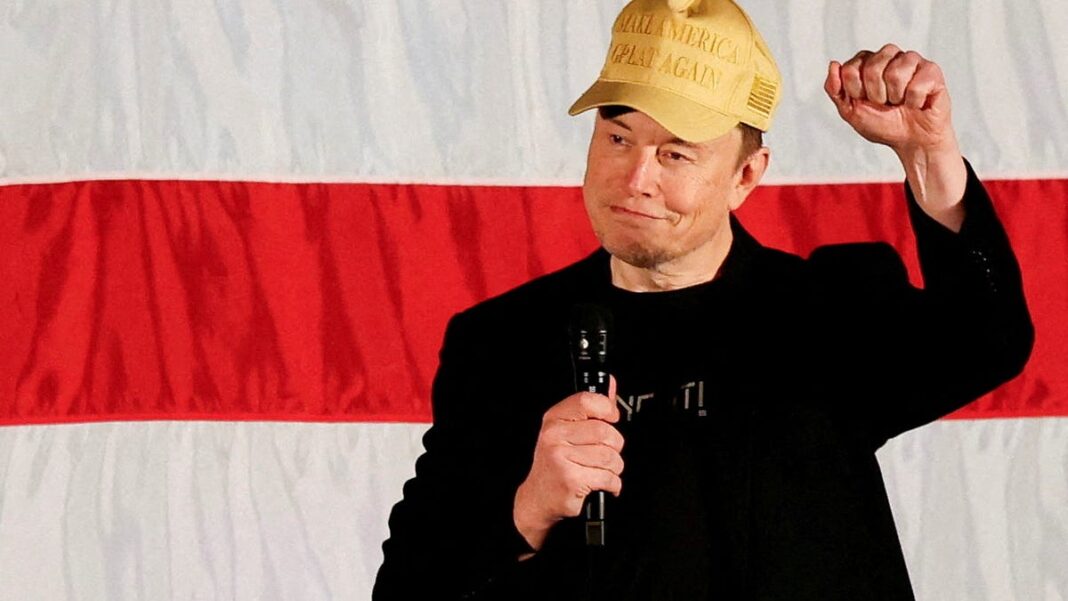Opinion: Musk stirs the left’s ire. Yet, he could assist Trump in revitalizing the government.
One of Donald Trump’s primary objectives as president should be to curb excessive government expenditures and runaway budget deficits.
A standout idea from Donald Trump’s campaign was his intention to leverage the expertise and innovative spirit of billionaire Elon Musk if he were to take office.
It appears Trump is committed to enlisting Musk—who heads Tesla and SpaceX and owns X (previously Twitter)—to explore ways to enhance government efficiency. (I understand that “government” and “efficient” typically don’t belong together.)
The American populace has conveyed a clear mandate to Trump to rein in inflation. A significant method he could employ to achieve this is by reducing excessive government spending and the soaring budget deficits that the Biden-Harris administration has ignored.
The federal government has ballooned, marked by an increasing number of agencies and regulations that hinder innovation and drain taxpayer resources.
Trump has recognized the nation’s staggering $36 trillion debt, which was approximately $27 trillion when he exited office in 2021. The interest accrued on this national debt now surpasses the spending on defense and Medicare combined.
Although Trump added $8 trillion to the debt, much of this was attributed to expenditures related to combatting the COVID-19 pandemic during its onset.
Musk is keen to assist and fully grasps the need for action.
‘Department of Government Efficiency’? Sounds appealing.
Musk jokingly proposed a “Department of Government Efficiency” to define his potential role within the upcoming administration. Trump has dubbed the position “Secretary of Cost-Cutting.”
Regardless of the title, the objective is paramount. Musk’s primary function will be that of an adviser, with any significant reforms requiring approval from the influential Office of Management and Budget and Congress.
Ultimately, Musk will be the public figure representing a larger initiative to reduce government size, as noted by Chris Edwards from the Cato Institute.
Musk has irked many Democrats lately, especially due to his acquisition of Twitter and his recent support for Republicans, including Trump.
It’s important to note that he cast his first Republican vote in 2022, motivated partly by the progressive suppression of free speech—which was also a key reason for his Twitter purchase.
Regardless of your political stance, it’s difficult to dispute Musk’s remarkable achievements. He is a visionary, capable of reimagining possibilities in areas like space exploration and electric vehicles.
It’s conceivable he could apply that same innovative approach to the workings of the federal government.
“I believe we have far too many government agencies,” Musk expressed recently on Joe Rogan’s podcast before the election. “The federal bureaucracy is out of control, and we need to simplify it to a more reasonable scale.”
Trump must act decisively in Year 1
Edwards emphasizes that Trump and Musk shouldn’t delay in determining what needs to be eliminated, since the president wields the greatest power in his first year.
According to Edwards, any strategy aiming for significant cost reduction must be bold and assertive.
If Trump intends to propose new tax cuts, he must complement those cuts with reductions in spending elsewhere. He should prioritize hiring qualified individuals for key positions in his White House budget office.
“There’s no time to waste on lengthy commissions or deliberations,” Edwards argues. “They are well aware of the most wasteful programs. Trump and his team should set clear priorities and vigorously pursue the desired cuts.”
Edwards provides various suggestions for areas where significant savings can be identified within the Trump administration.
Eliminating federal funding for state programs, including K-12 education, housing, and transportation could lead to savings exceeding $1 trillion annually. Edwards critiques these programs as “inefficient and undemocratic” due to their burdensome regulations and the tight federal control over the states tied to this funding.
While I don’t expect immediate miracles, it’s reassuring that Trump is bringing Musk onboard for this endeavor. I believe Musk will seize this opportunity to effect change.

